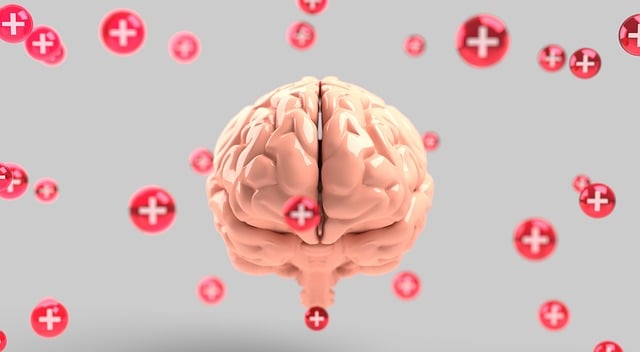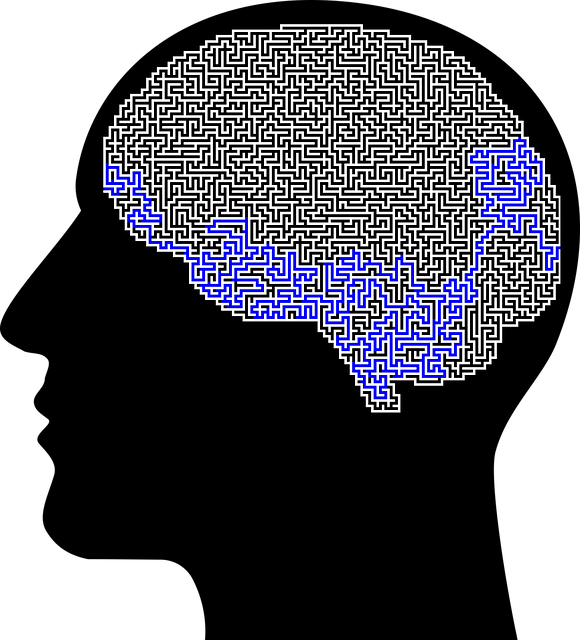Northglenn Anxiety Therapy leverages positive thinking as a powerful mental health tool, enhancing emotional resilience and coping mechanisms through tailored exercises like gratitude journaling, affirmations, guided meditations, and compassion cultivation. Their nuanced approach combines mindfulness, crisis intervention, and deep breathing to challenge negative thought patterns, reduce stress, manage anxiety, and promote long-term mental wellness. They advocate for consistent, personalized strategies including physical activity, community connection, goal setting, and risk management planning for high-stress jobs to foster healthier, happier mindsets.
Positive thinking exercises have emerged as a powerful tool in mental health management, particularly for conditions like anxiety. This article explores the transformative potential of positive thinking, with a focus on its application in Northglenn Anxiety Therapy. We delve into designing tailored exercises and provide strategies to integrate and sustain a positive mindset. By understanding the impact of positivity, you’ll gain insights into enhancing mental well-being through simple yet effective practices.
- Understanding Positive Thinking and its Impact on Mental Health
- Designing Effective Positive Thinking Exercises for Northglenn Anxiety Therapy
- Strategies for Integrating and Maintaining a Positive Mindset
Understanding Positive Thinking and its Impact on Mental Health

Positive thinking is a powerful tool that can significantly impact one’s mental health and overall well-being. It involves training the mind to focus on positive thoughts, beliefs, and expectations, which can lead to improved emotional resilience and coping mechanisms. By adopting a positive mindset, individuals can better navigate challenging situations, reduce stress, and enhance their ability to handle anxiety and depression. This practice is not about ignoring negative emotions but rather learning to reframe them and cultivate a more optimistic outlook.
For those seeking to improve their mental health, Northglenn Anxiety Therapy offers valuable insights and strategies. Developing a self-care routine that incorporates positive thinking exercises can be transformative. Simple practices such as gratitude journaling, where one reflects on the day’s positives, or affirmations, which are positive statements repeated to reinforce a sense of self-worth, can effectively reduce symptoms of anxiety and promote mental wellness. These techniques are not only accessible but also adaptable, allowing individuals to integrate them into their daily lives, thereby fostering a healthier and happier mindset.
Designing Effective Positive Thinking Exercises for Northglenn Anxiety Therapy

Designing Effective Positive Thinking Exercises for Northglenn Anxiety Therapy requires a nuanced approach that aligns with the unique needs and challenges faced by individuals seeking support in this community. Incorporating Mind Over Matter principles, these exercises should be tailored to foster resilience and reframe negative thought patterns prevalent among many Northglenn residents. A balanced blend of mindfulness techniques, compassion cultivation practices, and crisis intervention guidance can significantly enhance therapeutic outcomes.
By integrating these strategies, therapists in Northglenn Anxiety Therapy can create a safe space for clients to explore and challenge their thoughts. Exercises might include guided meditations focusing on breathing techniques to calm the mind, positive affirmation practices to counter self-critical narratives, and visualization activities that encourage a sense of peace and well-being. These tools not only empower individuals to manage anxiety but also cultivate a deeper sense of compassion towards themselves and others, ultimately transforming their perspective and promoting long-term mental health.
Strategies for Integrating and Maintaining a Positive Mindset

Integrating and maintaining a positive mindset requires consistent effort and diverse strategies tailored to individual needs. At Northglenn Anxiety Therapy, we advocate for a multi-faceted approach. Firstly, practice mindfulness through meditation or deep breathing exercises to stay grounded in the present moment, reducing anxiety and fostering calmness. Secondly, cultivate gratitude by regularly reflecting on positive aspects of life, which shifts focus from stressors to strengths.
Engaging in regular physical activity, connecting with supportive communities, and setting realistic goals also contribute to mental wellness. For professionals managing high-stress jobs, incorporating risk management planning into daily routines can be beneficial. This might include setting boundaries, prioritizing self-care, and accessing Trauma Support Services when needed. By combining these strategies, individuals can enhance their resilience, navigate challenges more effectively, and sustain a positive mindset over time.
Implementing positive thinking exercises, as explored in the context of Northglenn Anxiety Therapy, offers a powerful tool for enhancing mental well-being. By combining understanding, effective design, and practical strategies, individuals can cultivate a more positive mindset that promotes resilience and reduces anxiety. This approach, backed by scientific evidence, enables folks to navigate life’s challenges with greater ease and optimism, ultimately fostering a healthier, more fulfilling lifestyle.














